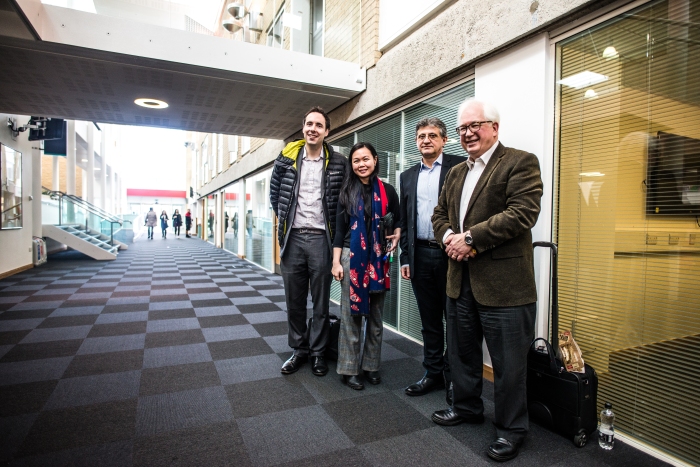Last week I had the pleasure of participating into another hackathon, this time here at Lancaster University. Tasked with creating a concept to evolve the famous “Lake District National Park” here in the UK into a Smart Park using IoT, we spent two days in small groups imagining the future. With approximately 40 participants in total, the hackathon was a bit smaller than recommended, but the narrow topic balanced this aspect well.
Despite the short time, all teams were able to deliver exceptional results ranging from augmented reality adventure hunts, over “smart” cycle routes, to outdoor museums. But what was it that allowed this plethora of innovative ideas to emerge within this limited time? After reflection, I can share here some of the best practices for future events.
- Have a concrete problem: As mentioned, again and again, be concise when defining the problem the participants set out to solve. These guidelines will help to fully focus all the efforts on a goal. However, be always careful to only give the problem and not to restrict the possible solution too much.
- Have industry experts: As the participants push into unexplored territories they will need all the help they get to ask questions and to clarify the possibilities. Have experts from different areas to support the participants on every step
- Remove obstacles: For us, rooms, food, guidance was provided. This allowed again to fully focus on the problem at hand. This best practice sounds logical, but really take your time to go through the whole process when planning and see where obstacles might arise. A good example is a centralized food catering. Even though it sounds like a good idea at first, if it is limited to a certain timeframe it might significantly disrupt the workflow of certain teams and thereby impair their results.
Overall it was a great experience and the ideas kept flowing even after the hackathon was over. I am looking forward to my next experience.

What a happy Jury
Photo credits: “Creative Commons attribution and MSc. in E-Business and Innovation, Lancaster University Management School, 2017”
Perfect example! Great how creativeness is made perfectly possible! 🙂
LikeLike
I like your observations! Thanks for the inspo 🙂
LikeLike
Great work and creative ideas!
LikeLike